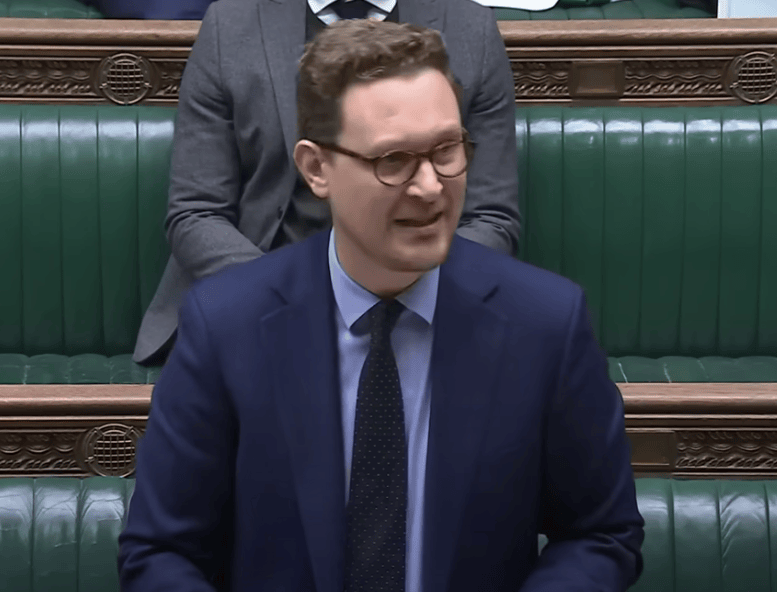Promise of Spending Cuts Help Gilts Recover
- Written by: Gary Howes

Above: Darren Jones, the chief secretary to the Treasury, Source: Parliament TV.
Bond yields have settled amidst indications Chancellor Rachel Reeves is ready to cut spending.
A report in the Labour-leaning Guardian newspaper reveals Reeves is considering imposing steeper cuts to public services to repair the government’s finances.
"It's worth flagging this story in The Guardian overnight, which we should read as essentially an official statement. Treasury officials leaked that they are doubling down on a commitment to cut public spending to meet the government's budget goals, rather than raise taxes or shift the fiscal goalposts. They hope this will cool market anxiety about the UK's fiscal trajectory," says a note from TD Securities.
Pound Sterling and UK bonds, known as gilts, came under substantial pressure this week as fears about the UK's debt dynamics evolved into a market correction.
GBP to USD Transfer Savings Calculator
How much are you sending from pounds to dollars?
Your potential USD savings on this GBP transfer:
$1,702
By using specialist providers vs high street banks
A sharp slowdown in UK economic activity since Labour came to power means that its commitment to borrowing and spending more money, while hiking taxes, was unsustainable.
The rise in gilt yields and a fall in the pound were a clear market expression of unease with the reality that Reeves must now find billions of pounds in additional taxes or spending cuts to ensure she meets a fiscal rule of ensuring debt falls as a percentage of GDP by 2029.
Reeves announced taxes on businesses would rise substantially in April, which has stalled the economy and threatens to raise unemployment.
As a result, it is believed the Chancellor won't take the economically damaging route of raising taxes again.
🎯 GBP/USD year-ahead forecast: Consensus targets from our survey of over 30 investment bank projections. Request your copy.
Darren Jones, the chief secretary to the Treasury, told Parliament on Thursday that movement in the bond market remained "orderly" while confirming that the government would stick to its fiscal commitments.
Government officials have told the Guardian the chancellor is prepared to reduce departmental spending even more than planned, having ruled out increases to either borrowing or taxes.
The commitment to cutting spending looks to be enough to soothe market fears, for now. The GBP/USD exchange rate fell as low as 1.2237 on Thursday and has since recovered to 1.23015.
It looks like Reeves will find some money to ensure she stays within the confines of her fiscal rules by cutting departmental spending.
But it is worth remembering that unprotected departments have already been cut to the bone, and there will be slim pickings for the chancellor.
Until she goes for the welfare bill, she won't make material progress.
"What can Rachel Reeves do to get out of the fiscal swamp the UK is currently in? This is my tuppence worth: cut welfare budget at the same time as cutting lower rate of tax, make work pay, get people to reconsider benefits over work, and boost productivity," says Kathleen Brooks, analyst at XTB.
Analysts at TD Securities say there are signs that the Chancellor will raise taxes again later in the year.
"We've heard Treasury staff are looking at scenarios (and to stress - these are just scenarios, not actual policy decisions) for possible tax hikes before the November budget (i.e., in late March), including an increase in the fuel duty and wealth taxes (such as a higher property tax band, cancelling the income tax threshold rises, and reducing pension tax relief). While not base case yet, if the fiscal picture continues to deteriorate, these start to rise in probability," says the bank.
With the UK's tax burden at its highest since the Second World War, it is hard to see how such hikes will do anything other than damage the UK's growth potential further.
Although the selloff in the GBP/USD has faded, the outlook for 2025 has most certainly deteriorated.




